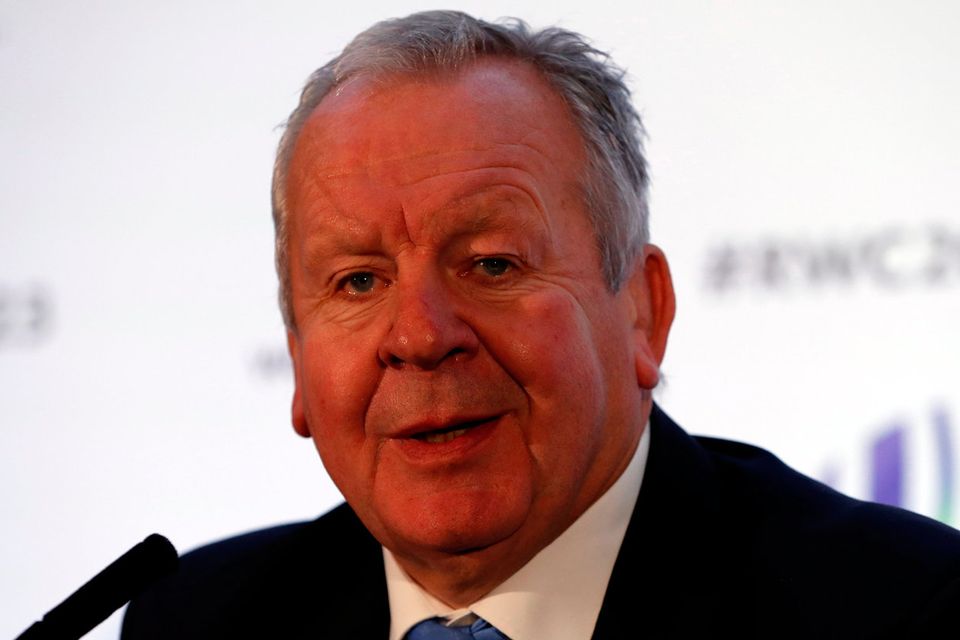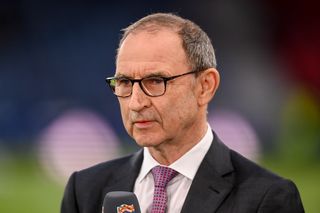Brendan Fanning: French clout knocks little guys out of picture for good
World Rugby chairman Bill Beaumont Photo: Reuters/Paul Childs
In the lead-up to the third Test between New Zealand and the Lions in Auckland in July 2005, the NZ union asked the travelling media to check out their bid for the 2011 World Cup. It helped that the venue was across the road from our hotel. So over we went, and men in black told us all about how a World Cup for New Zealand would be 'a stadium of four million'.
Their stadia were not exactly top of the range, with grassy knolls that would put in the ha'penny place that patch by the Texas Schoolbook Depository. They didn't have a motorway network either. As for somewhere to rest your head, the hosts would be relying on those twin peaks of the tourism industry: camper vans and cruise ships that docked rather than cruised.
The presentation was solid more than showbiz. And there was an emotional twang to it as well: if we don't get this one lads then we'll never get it again. At the time it struck us as a less-than-compelling criterion for deciding who should host a World Cup. Had we thought about it a bit more we would have credited the Kiwis with their prescience. They would be the last of the little people.
That was brought home again last week to anyone with a passing interest in the bidding war for the 2023 tournament. Its outcome was confirmation that, if on-field the game has become pretty much for big athletes only, then off the field its showpiece event is now all about scale.
This will crystallise the criteria for future bidders. Never mind all that crap about legacy - speaking of which Ireland's notion of winning over North America always had a touch of Glocca Morra about it - because World Rugby will look after that bit. They will need cash though.
So focus solely on these issues: first, bypass the tournament fee and go as far beyond it as you think will take you ahead of your competitors; second, make sure you have the stadia/tech/transport infrastructure to make the whole gig look big and busy and beautiful; and third, have big business standing by to go the extra yard. Then you're sorted. The only impediment could come from a change in governance by World Rugby. As currently constituted, World Cups can be awarded only by a vote from WR's council members. And as we saw last week, that vote is by secret ballot.
Last month we put it to one of the WR lads that if transparency was really their aim in setting up the detailed and laborious evaluation process, then following it up by a secret ballot added an opaque layer across the top. He toed the party line in the way he'd stick the same toe in unknown waters.
"It was agreed by all member unions," he said. "It is in line with international best practice for good governance as well as other major sporting events and has been clearly communicated from the outset."
No one in WR headquarters was comfortable about the prospect of the vote taking the result in a different direction from the recommendation. The nadir was the sight and sound of chairman Bill Beaumont claiming he didn't feel humiliated by what had happened.
And what happened was that France got the gold medal in the horse-trading stakes. With Ireland having done a good job in discrediting the recommendation for South Africa, in stepped France with the commercial clout to fill the vacuum.
Last Tuesday, the day before the World Cup vote took place in London, a "ground-breaking strategic partnership" was announced by Rugby Africa with a private firm, APO Group. Rugby Africa is one of World Rugby's six regional associations, and are headquartered in the same building as the South African Rugby Union in Cape Town. Their general secretary, Mervin Green, is a representative of SARU.
Rugby Africa carried two votes to the table last Wednesday. They lobbed them over to France. APO, their brand new sponsor, is a media relations outfit with headquarters in Switzerland. Its founder and CEO is a French chap called Nicolas Pompigne-Mognard.
As the bandwagon was rolling towards the London vote an Italian colleague was gobsmacked by the line he was getting from the Italian federation. The theme was that were so much big business in France trying to align itself to rugby that there wasn't room for it all - so some might spill over the border into Italy!
This didn't seem that far-fetched, for in March Montpellier moneybags Mohed Altrad signed a memorandum of co-operation with the Georgian union, and Rugby Club of Kutaisi, to develop an academy there. Between Rugby Africa and Georgia, that was three votes in the French bank.
If in the near future we see Scotland availing of the splendid and warm training facilities in Lyon that might explain how another three votes went that direction.
So for World Rugby to play the transparency card and then leave the door open to politics - at which France had far more clout than Ireland - was either naïve or weak. And it leaves them now with a choice: either they make the World Cup vote an open affair or they take the vote away from the council altogether, and vest it in a technical group.
We can't see the latter coming to pass, so what seemed so unpalatable to them a few weeks ago - genuine openness - looks a whole lot more attractive now. As for our lot, the irony is sublime: Ireland played a blinder in getting New Zealand over the line for the 2011 tournament. In the process it closed the door on us ever following them down the same road.















